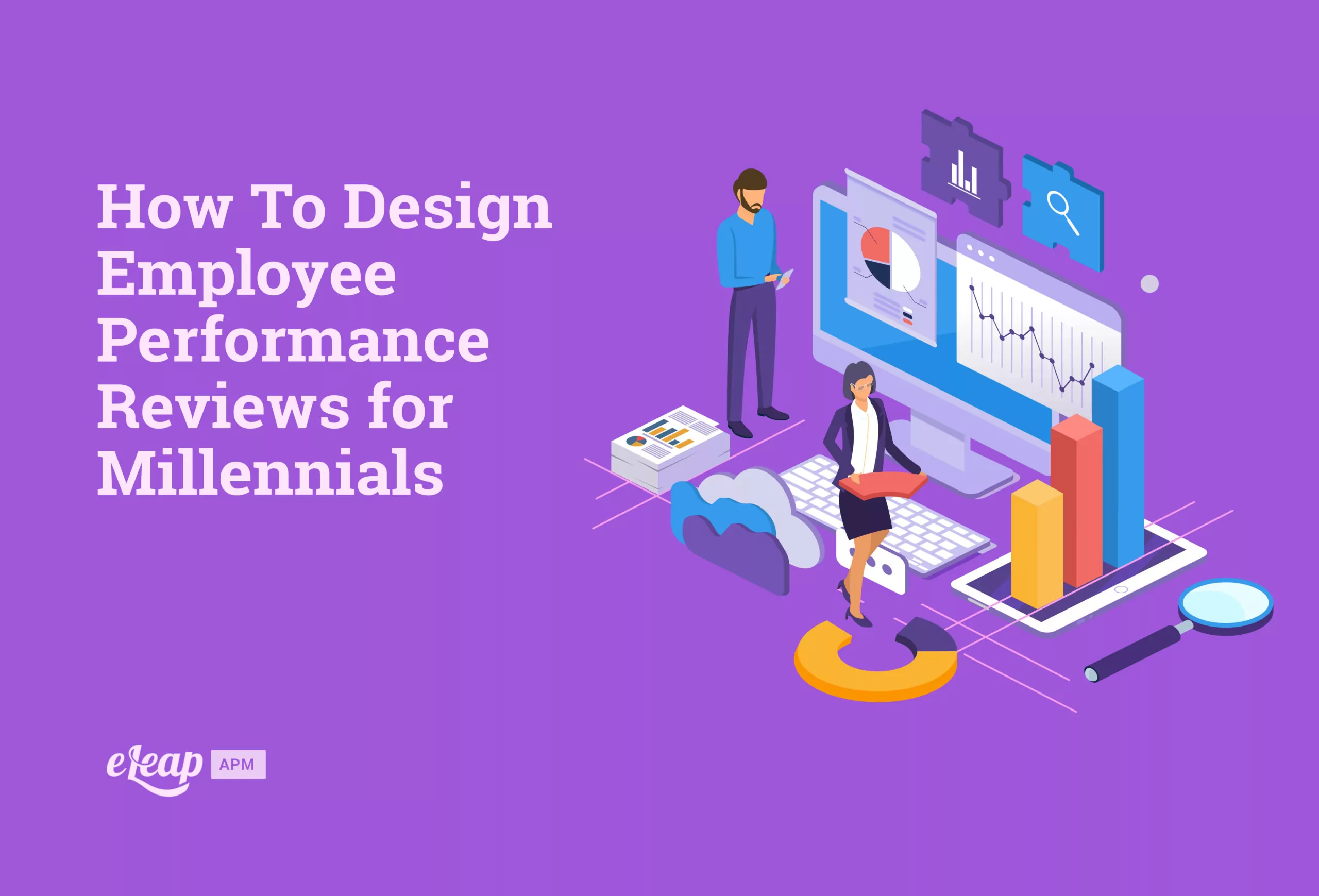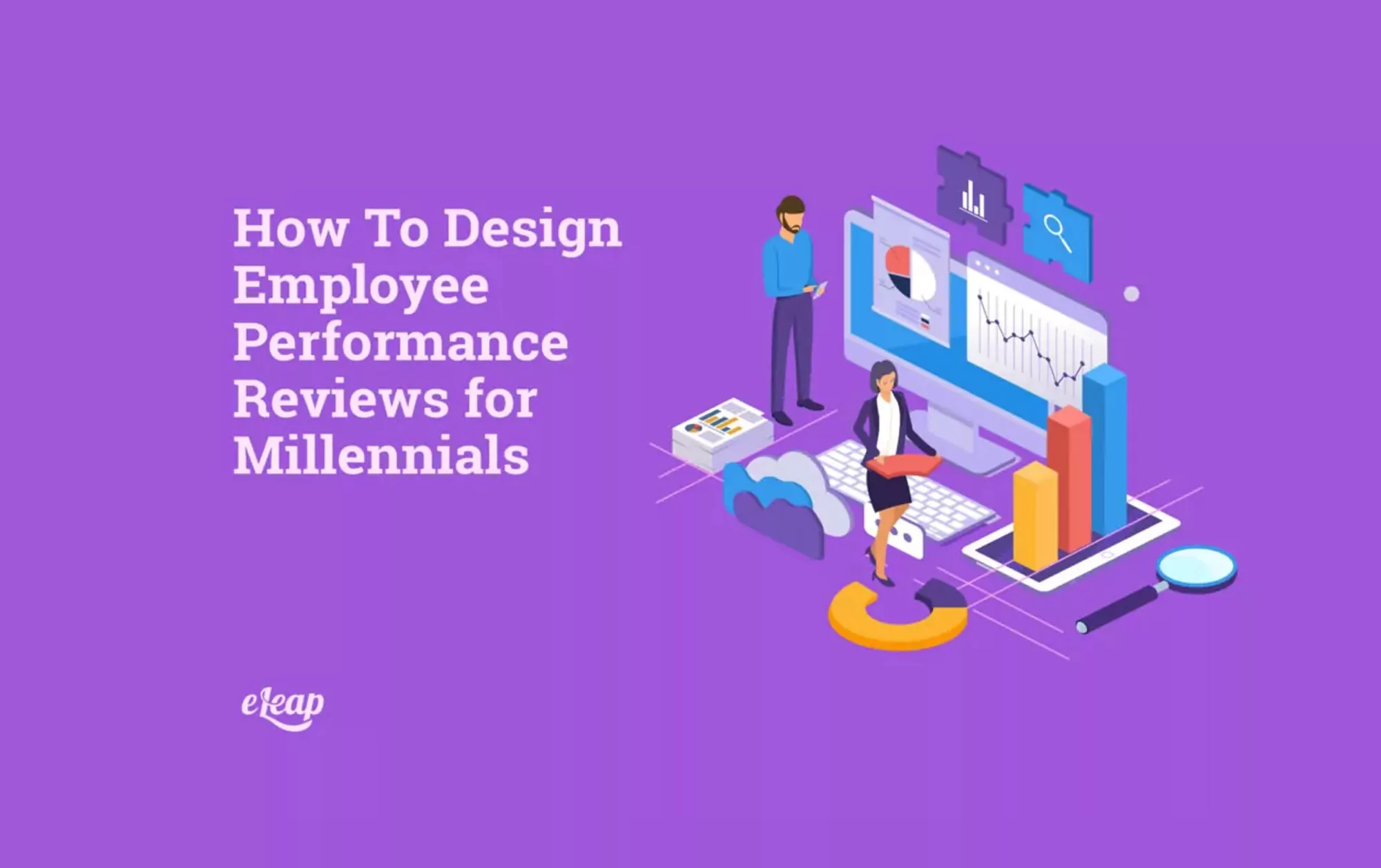How To Design Employee Performance Reviews for Millennials

One of the primary goals for any organization should be retaining its best-performing employees in the long run. Of course, this is easier said than done and requires many different factors. But when it comes to retaining employees, performance reviews play an important role. Performance reviews need to deliver what’s expected and help employees grow and improve in order for employees to stay with the organization.
As organizations evolve and generations of workers start to shift, employees’ aspirations and expectations change as well. Old-school performance reviews make retaining younger employees very difficult. Traditionally, employee reviews were annual and only measured productivity. Reviews were limited to evaluating output, and employees were rated only by their leaders. While these methods might have worked for older generations, they simply don’t cut it for the Millennial workforce. How we evaluate millennials should differ from the traditional performance review style.
Millennials will soon make up the majority of America’s workforce, with Generation Z following not far behind. In fact, within the next 10 years, Millennials will make up 75% of our labor force. What does this mean? Well, if you want your organization to stay successful and retain employees, taking the millennial workforce into consideration when designing performance reviews is critical.

How Millennials Differ from Older Generations
Millennials have several distinguishing characteristics that set them apart from other generations. Primarily, Millennials grew up during an era when technology was radically changing the world. This makes them far more tech-literate, generally speaking, than older generations.
Millennials welcome technology: in fact, they often prefer it. Performance reviews conducted on pencil and paper won’t engage a Millennial worker. What’s more, technology, particularly social media, means that Millennials are used to constant, real-time feedback on anything and everything. Without this feedback, they can easily become disengaged.
What does this mean in the workplace? Well, annual performance reviews simply won’t cut it anymore. Millennials require regular, real-time feedback to keep them interested.
In addition, Millennials have the drive to succeed and the ability to use technology to learn new skill sets, which could allow them to further their capabilities. Organizations need to identify employees’ aspirations and provide them with resources, such as a good LMS, to help them achieve those ambitions.
There are also specific differences in what Millennials expect out of a performance review. Millennials thrive in organizations where they see a future and can grow and expand their knowledge and opportunities. So, performance reviews should heavily emphasize growth opportunities.
What’s more, older generations were generally content with simply fulfilling the job duties based on their job descriptions, while Millennials would prefer not to be limited by their job descriptions. Often, they want to improve their skill sets, expand their horizons, and take on more responsibilities. As a result, they tend to leave an organization where they feel stagnated in their role.
The Millennial generation is also very self-motivated and prefers their superiors to be less intrusive. In many cases, mentorship is more appealing to them than “management”. They don’t take kindly to micromanaging or leadership that uses a forceful hand.
Lastly, Millennials are hugely receptive to and appreciative of more flexible working conditions, such as the ability to work remotely. Younger generations are more accustomed to balancing their work and personal life, and they prefer flexible work arrangements that allow for this. Consequently, employee reviews shouldn’t be rigidly based on working hours and whether an employee works from home or comes into the office. Taking into account people’s schedules should never be what a performance review is based on. Instead, productivity should be evaluated.
All in all, if an organization wants to retain millennials, its employee reviews should cater to their specific needs and expectations. So, you understand why this is important, but how do you put it into practice? Here are some top tips for designing your performance reviews to suit younger generations.
Achievements Should Always Be Recognized
Employees should have a chance to reflect on their achievements and how their contributions have helped an organization grow. Offering appropriate promotions, perks, and benefits to reward achievement will make them feel appreciated.
Encourage Aspirations
Employees should have the freedom to express their goals and ambitions. Ensure they have the opportunity to progress in their careers towards their aspirations.
Identify Areas They Might Want to Learn
Give employees the opportunity to express what they want to learn and how they would like to expand their skill sets. Provide resources and platforms that allow employees to learn at their own pace and convenience.
Provide a More Convenient Work Style
Millennials enjoy working in a manner that allows them to balance their work and home life. In fact, when this is catered to, productivity amongst Millennials skyrockets. Younger generations who are provided more flexibility will perform better and be much more satisfied with their jobs.
Keep Them Engaged
Millennials are a much more connected generation than their older counterparts, and they prefer constant updates rather than long but infrequent meetings. Ensure that they remain engaged by providing real-time feedback and performance reviews frequently.
Prepare Them for Leadership
Millennials’ ambitions are high, and they tend to prefer to grasp leadership opportunities that will allow them to grow beyond what is expected in their current roles. You can use performance reviews to identify leadership potential and assign them the appropriate responsibilities for growth.
Be Clear About Your Expectations
Ratings and general feedback might have been ok for Generation X. Millennials, on the other hand, are eager to learn and need specific feedback regarding their strengths and weaknesses to do so. You should customize each review for every position, giving employees feedback tailored to their job responsibilities so they know how to better address areas of concern.
Engaging employees through performance reviews involves taking their perspectives into account and anticipating their needs. Millennials grew up very differently than older generations, and as such, they require different methods in order to thrive in the workplace and perform to the best of their abilities.